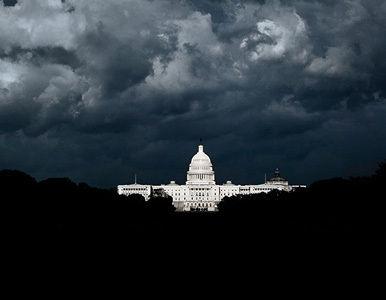
This afternoon, as expected, the House passed a measure to temporarily “suspend” the nation’s debt ceiling until May 19th. The measure also contained a provision that would withhold congressional paychecks after April 15th until such time as Congress passes a budget. In a press conference during the House vote, Senate Majority Leader Reid said the Senate would take up the House measure “as is,” clearly a path for Obama’s signature. With today’s action, the debate over the debt ceiling, which was the first of a three-act budget drama, ends. The fight over the budget now begins.
The current budget debate is made up of three events; debt ceiling, sequestration and budget expiration. All three happen within a short-time frame, but not simultaneously. The first event was government hitting the debt ceiling, its borrowing authority. That was expected to be reached in mid to late February. Today’s vote pushes that deadline until late Spring.
The second Act of the debate is the sequestration, a package of automatic, across-the-board spending cuts enacted during the last debt ceiling debate in 2011. The sequestration places caps on discretionary spending as well as cuts around $100 billion from this year’s budget, split roughly between Defense and domestic programs.
Originally, the sequester was set to take effect at the beginning of the year. The “fiscal cliff” deal, however, delayed the cuts until March 1st. Sen. Patty Murray, incoming Chair of the Senate Budget Committee, said today that she would move a package of cuts to replace the sequester. However, House GOP Leadership has indicated that they will allow the sequester cuts to take effect.
The final, climatic Act of the budget drama is the debate over a formal budget for the government. The Senate has failed to pass a budget for the past 4 years, requiring a series of continuing resolutions to keep the government running. The last of these expires on March 28th. If neither another continuing resolution nor formal budget is enacted, the government will shut down.
The GOP plan is that, with the debt ceiling debate out of the way, they can focus discussions on the overall budget. By debating all government spending, the GOP hopes to be able to put entitlement and tax reform on the table. Sen. Murray said today that her committee would begin to consider a Budget Resolution for the government. Speaker Boehner has promised, in a nod to conservatives, that any House Budget Resolution would balance the budget in 10 years. This debate will dominate Washington for the next few months.
Today’s vote buys the GOP some time to argue for more comprehensive cuts and reform. It increases pressure on the Senate to put its spending priorities down on paper. It is important to remember that Budget Resolutions only provide a general framework for government spending. Appropriation committees will still control specific spending decisions and how certain reforms are implemented. That said, the debate over the Budget Resolution does at least provide us with a national debate about the proper role of government.
The GOP needs to engage the American public in this debate. If they do, today’s vote will have strengthened their negotiating position. If, however, they continue to play the narrow, DC-centric negotiating strategy, relying on the media to communicate their positions, then today’s vote was yet another punt. They have some “breathing room.” Let’s hope they use it wisely.

COMMENTS
Please let us know if you're having issues with commenting.